Nov 11, 2024 | Native Hope
Serving to protect this nation is something Native Americans have done since the Revolutionary War. Many ask how is it possible that Natives want to serve a country where "they [U.S. military] weren't nice to you?" Peter MacDonald, WWII Navajo Code Talker, explains, "Still, this is our land. This [America] is our home; this has always been our home…we have always wanted to fulfill a warrior path."
After interviewing and researching several people of various ages, it is evident that the warrior spirit binds the Native American people from 573 sovereign nations together. To be an akicitas (warrior-Lakota) means to be a protector—a protector of tribe, land, and culture. They honor peace as well. Akicitas do not have to "fight" in a war to possess the warrior spirit—some offer wisdom and diplomacy.
Native American VeteransEvery year on November 11, America celebrates Veterans Day. "According to the Department of Defense, in 2010, 22,569 enlisted service members and 1,297 officers on active duty were American Indians. Considering the United States population is approximately 1.4 percent Native, and the military is 1.7 percent Native (not including those who did not disclose their identity), Native people have the highest per-capita involvement of any population to serve in the U.S. Military."
Serving in the military "was a calling for something greater than myself—that warrior spirit. Something I had to do," recalls Peter Lengkeek, Chairman of the Hunkpatí Oyáte (Crow Creek Sioux Tribe), and with a big smile, he adds, "Did you know that Crow Creek has more U.S. Marines than any other nation? The best fight is with the Marines."
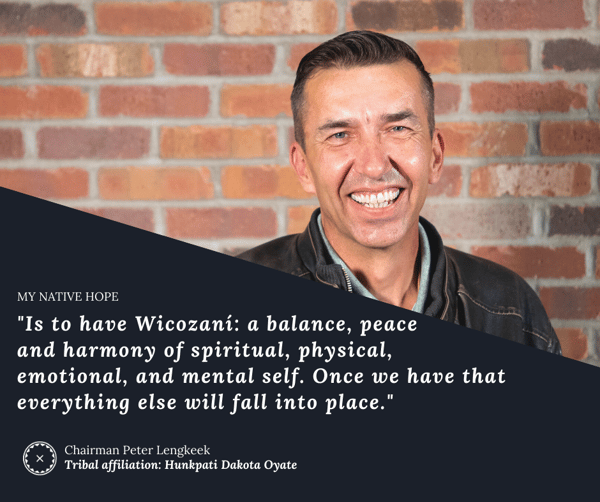
A fellow U.S. Marine, Sergeant Jacob Lacota from the Kul Wičasa Oyáte (Lower Brule Sioux Tribe), echoes Peter's thought: "I wanted to be something bigger than myself. I wanted to serve not only my country, but I wanted to be part of something big. I wanted to be a member of the few and the proud."
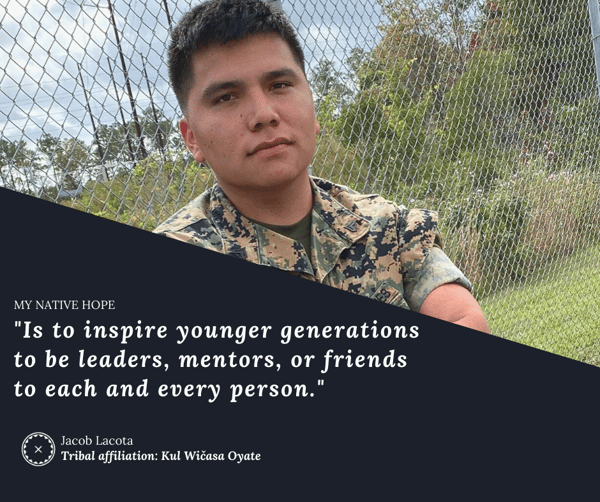
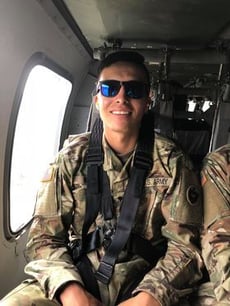 This sense of pride brings Native veterans together— the pride of the family members who have served before them and of those with whom they serve. Many families and communities dedicate themselves to military service. SPC Isiah Knife, Sinčangu Oyáte (Rosebud Sioux Tribe) and U.S. Army Unit Supply Specialist, explains, "Honestly, I really didn't want my mom ever to have to worry about me going to college and having a huge debt when I finish…but also I joined to make my family proud. We haven't had a family member join the service since my two uncles. I wanted to start the legacy and carry it on—hopefully—my siblings follow my steps."
This sense of pride brings Native veterans together— the pride of the family members who have served before them and of those with whom they serve. Many families and communities dedicate themselves to military service. SPC Isiah Knife, Sinčangu Oyáte (Rosebud Sioux Tribe) and U.S. Army Unit Supply Specialist, explains, "Honestly, I really didn't want my mom ever to have to worry about me going to college and having a huge debt when I finish…but also I joined to make my family proud. We haven't had a family member join the service since my two uncles. I wanted to start the legacy and carry it on—hopefully—my siblings follow my steps."
Some join because it is the right time. "I really just did it one day. I just up and said, 'Hey, I'm going to enlist in the Army and contacted a recruiter," Martina Hawk of the Kul Wíčasa Oyáte and U.S. Army jokes. However, Martina comes from a line of military servicemen and women: her dad, aunts, and uncles.
Native American Warrior (Akicita) Spirit
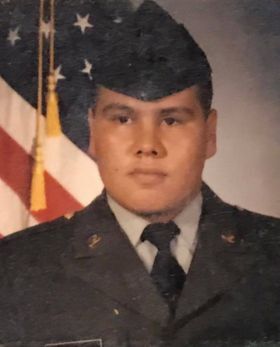 "My grandfather served before me and his before him. We come from a lineage of akicitas," says Lyle Miller, Sr., Ihanktonwan Oyáte (Yankton Sioux Tribe). He served as a Combat Engineer in the 589th Engineer Battalion of the U.S. Army. He feels that in today's society serving in the military is the only way to find honor. Lyle did not only serve for the honor. "It [service] called me, and I answered the call. It takes courage and sacrifice." Zuya Akicita (to go away on a perilous journey-Lakota) does indeed take sacrifice—a cultural attribute of the Native American people.
"My grandfather served before me and his before him. We come from a lineage of akicitas," says Lyle Miller, Sr., Ihanktonwan Oyáte (Yankton Sioux Tribe). He served as a Combat Engineer in the 589th Engineer Battalion of the U.S. Army. He feels that in today's society serving in the military is the only way to find honor. Lyle did not only serve for the honor. "It [service] called me, and I answered the call. It takes courage and sacrifice." Zuya Akicita (to go away on a perilous journey-Lakota) does indeed take sacrifice—a cultural attribute of the Native American people.
SPC Knife shares, "[Since it's] Native American Heritage Month, I'm able to share my culture and heritage with people around me who want a better understanding of it. A lot of people don't know that Native Americans still exist—I'm one of the first they met, so it makes me feel good when I'm able to share the culture with co-workers [soldiers]."
Dewwey Bad Warrior, Mnícoujou Oyáte (Cheyenne River Sioux Tribe), U.S. Marine Corps, tells of his grandfather's training in PBS's The Warrior Tradition, "'Grandson, sit down, I want to talk to you.' I wanted to play, but I sat down. After a while, I could hear the birds singing out there and a lot of other sounds. Then, an hour later, after four times offering me a pipe. He said, 'We are done talking,' and he never once said one word. I learned patience. He saved my life when I was in Vietnam. I had to sit hours waiting for an ambush."
Honoring and Cleansing is Tradition
Native Americans provide support to veterans from their communities. "War is traumatic…becoming an instrument of war is very difficult for the psyche," explains Patty Loew, Ojibwe, and Professor of Journalism. Native American communities prepare their members for war, spiritually. "There is a spiritual component to war: If you are going into a situation where you may lose your life or take the life of someone else, there is nothing more spiritual than that." On the flip side, Loew adds, "You must reintegrate [cleanse] a soldier to his or her humanity…that is something mainstream society can learn from Indian Country."
Native Hope honors all veterans and recognizes their sacrifice for our freedoms here and abroad. We thank our relatives, who shared their thoughts and experiences with us.
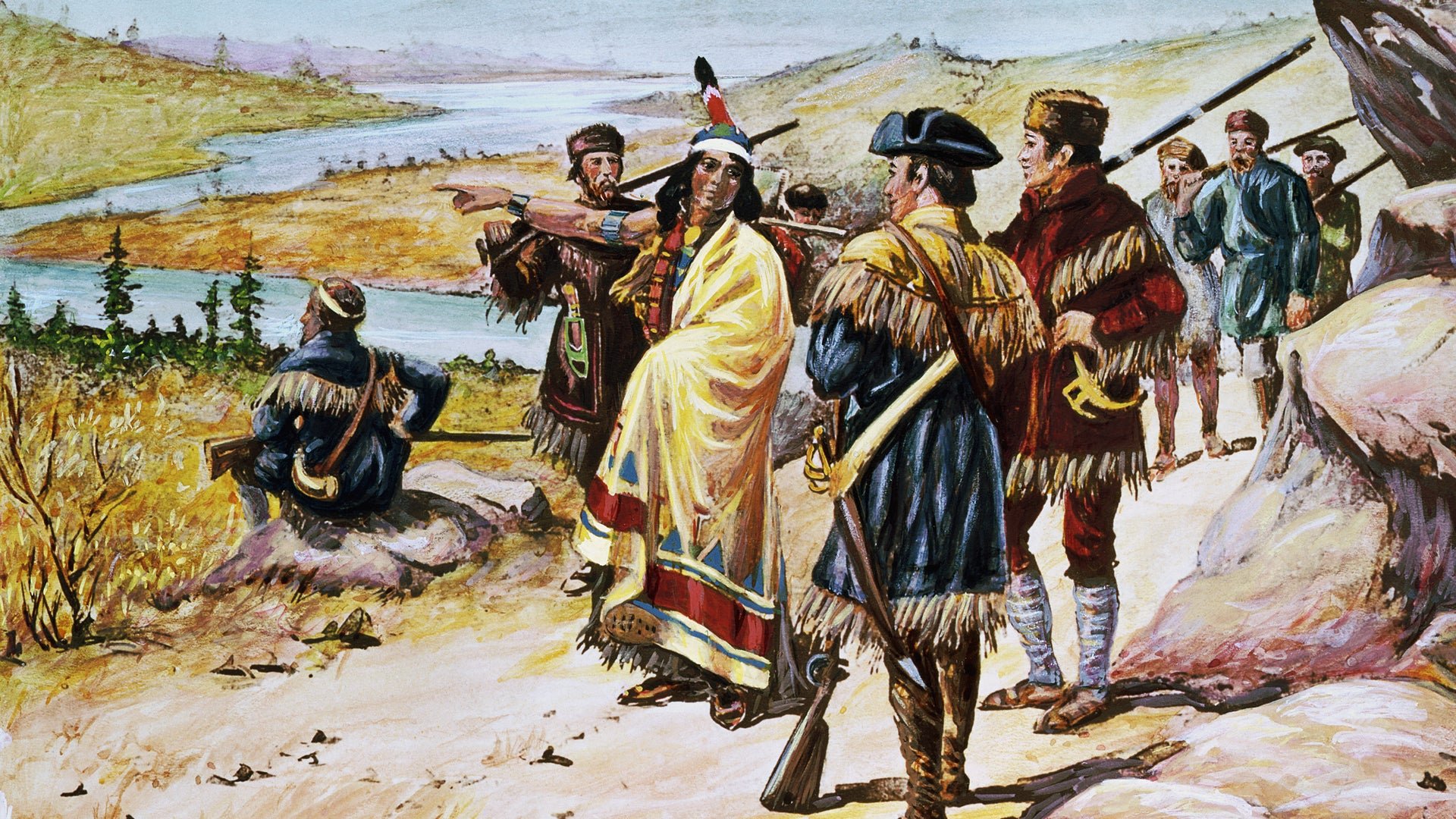
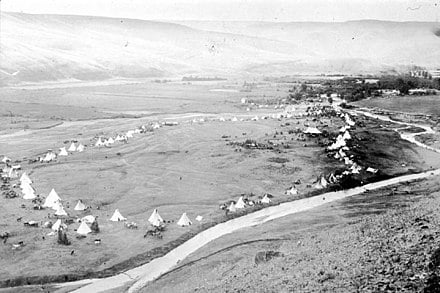

COMMENTS